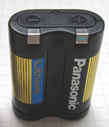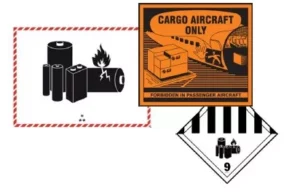SHIPPING LITHIUM BATTERIES
Lithium Batteries are continuing to be a huge topic of conversation across multiple industries with especially as the UK government is investing millions of pounds in research and innovation projects with an aim to assist the government meet its environmental targets and improve it’s environmental performance.
The United Kingdom are aiming to reduce absolute carbon emissions by 34% by 2020/21.
New facilities are being to scaled-up to advance the production of the use and recycling of batteries. All with an aim to develop an electrified economy. The use of lithium batteries has grown at an exponential rate over the last few years and this is set to continue as we aim for electronification. Whereas, the regulations have got more restrictive and somewhat more complicated for the transportation of Lithium Batteries by any mode of transport. Here is a quick insight into Lithium Batteries.
What does a battery do? The electrolyte is a chemical medium that allows the flow of electrical charge between the cathode and anode. When a device is connected to a battery — a light bulb or an electric circuit — chemical reactions occur on the electrodes that create a flow of electrical energy to the device.
Seems simple enough so why do we need special rules for Lithium Batteries? On July 27 2011 an Asiana Boeing 747 cargo plane was destroyed when it crashed into the sea off Jeju Airport in South Korea after a large fire rapidly escalated. It moved so quickly is did not allow sufficient time for an emergency landing – all crew on board were killed. This was the first of many incidents so the UN collaborated with ICAO, IMO and UNECE to change the rules.
There are 2 types of Battery that the transport industry is concerned with;
|
Type
Description
Used in
Battery Example
Battery is 2 or more cells which are electronically connected together and fitted sometimes called a battery pack.
Cell
Cell means a single encased unit with one positive and negative electrode. |
|
Lithium Ion Batteries
Known as Li-on are a type of rechargeable battery that are generally found in consumer products to power items.
mobile phones, laptop computers, tablets, power tools e-bikes
|


|
Lithium Metal Batteries
Are non-rechargeable batteries that have lithium metal or lithium compounds and are generally used to power appliances
watches, calculators, cameras, temperature data loggers, car key fobs and defibrillators |



Lithium Batteries must be tested in accordance with sub-section 38.3 of Manual of Test and Criteria a copy of thee test summary may be requested by a carrier or competent authority at any time. If you are building batteries into a new piece of the equipment the article should be tested to ensure that it cannot short circuit, reverse current flow or activate under the normal conditions of transportation.
One of the major risks associated with transportation of batteries and battery operated equipment is the short-circuit of the battery as a result of the terminals coming into contact with each other or conductive surfaces. All packed batteries must be separated to prevent short circuiting and damage to the terminals and placed in strong rigid packaging.

For all transport modes the wattage (Ion) or the aggregate lithium gram content (Metal) of the battery or cell determines
a) the net quantity that is allowed to be shipped
b) the packaging and documentation requirements in the dangerous goods regulations.
Any Lithium Ion Batteries must be shipped at a state of charge not exceeding 30% of their rated capacity.
If you are required to ship lithium batteries overseas by any mode of transport you need Lithium Battery Training to ensure the safety of people, property and the environment that the batteries may come in contact with.
Logicom Hub® Ltd is a certified Civil Aviation Authority training provider that works in the logistics industry helping shippers and freight forwarders navigate through the dangerous goods regulations. We train Lithium batteries in every mode of transport in an interactive, relaxed and shared learning environment or take one of our Online Lithium Battery Training Courses.
If you would like us to come an visit your facility to check that you are following the regulations or would like more information on Lithium Batteries, please call 0330 912 5041 or Contact Us



